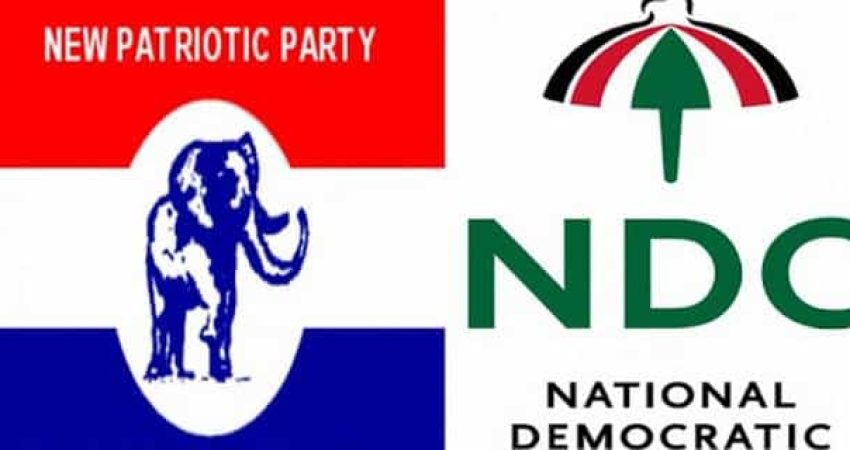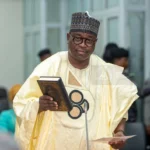ACCRA — The Ghana Centre for Democratic Development (CDD-Ghana) is sounding the alarm over the skyrocketing expense of political campaigns, warning that the nation’s democracy could soon be the exclusive domain of deep-pocketed elites rather than merit-driven leaders. In a recent radio interview, William Nyarko, Executive Director of the Africa Centre for International Law and Accountability (ACILA) and a consultant to CDD-Ghana on campaign financing, disclosed that mounting a viable presidential bid now demands a staggering $200 million—up from earlier estimates and a figure that underscores the growing monetization of Ghanaian politics.
Nyarko shared these insights during an appearance on Happy 98.9FM’s Epa Hoa Daben show, hosted by Bismark Brown (BB), where he delved into the perils of unchecked campaign costs in Ghana’s evolving electoral landscape. “The cost of running for presidency has ballooned to about $200 million,” he revealed, highlighting how this financial barrier erects insurmountable hurdles for ordinary aspirants. For context, Ghana’s 2024 presidential election saw incumbent Vice President Mahamudu Bawumia of the New Patriotic Party (NPP) face off against John Dramani Mahama of the National Democratic Congress (NDC), with Mahama emerging victorious amid a fiercely contested race that analysts say was awash in funds from undisclosed sources. Since the return to multiparty democracy in 1992, Ghana has prided itself on peaceful power transitions, but rising campaign expenditures—fueled by lavish rallies, media blitzes, and voter inducements—threaten to undermine that stability.
This isn’t the first time CDD-Ghana has spotlighted the issue. A 2021 survey by the think tank pegged the cost of a winning presidential campaign at $100 million, a number that climbed to $150 million by early 2025 amid inflation and intensified competition. Nyarko’s $200 million estimate, drawn from recent consultations and data on party primaries and national hustings, reflects the latest escalation. Parliamentary seats, by comparison, now fetch around $650,000 each, per CDD figures, turning elections into high-stakes auctions where only the affluent or their proxies need apply. “When political actors spend excessively to get into office, they often seek to recoup through corrupt means,” Nyarko cautioned, echoing broader concerns about illicit funding from illegal mining, foreign donors, or business tycoons.
The implications for Ghanaian democracy are profound. With youth unemployment at 13% and poverty affecting over 40% of the population, the dominance of money in politics exacerbates inequality and erodes public trust. CDD-Ghana argues that without robust campaign finance reforms, the system risks capture by wealthy interests, sidelining competent but underfunded candidates and fostering a cycle of graft. Executive Director Professor H. Kwasi Prempeh, speaking at an Open Society forum in Accra last week, reinforced this, stating that such costs make politics “the preserve of the wealthy or those with access to powerful financiers.” He called for immediate action on regulating internal party democracy and scrutinizing funding sources to safeguard development gains.
Nyarko, whose ACILA focuses on accountability and anti-corruption, urged lawmakers to revisit the outdated Political Parties Act, which Ghana ratified alongside international anti-corruption conventions like the UN’s UNCAC in 2007. “Citizens ultimately pay the price through inflated contracts and poor governance,” he told Brown, advocating for an independent enforcement body to cap spending, mandate disclosures, and ban illicit funds. On X, the conversation is heating up: Users are decrying how “$200 million bids spell doom for true democracy,” with one post from @AfricanHub_ garnering thousands of views and sparking debates on reform urgency.
Yet, change won’t come easy. Ghana’s two-party duopoly—the NDC and NPP—has resisted caps, citing free speech concerns, while enforcement remains lax. Rights groups like the Media Foundation for West Africa support transparency but warn against overregulation stifling participation. As Ghana eyes the 2028 polls under President Mahama’s “Reset Ghana” agenda, experts say addressing campaign financing is non-negotiable. Without it, the dream of a merit-based democracy could fade, leaving ordinary Ghanaians on the sidelines of their own political destiny.




